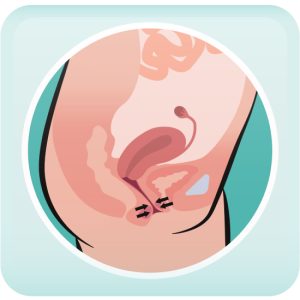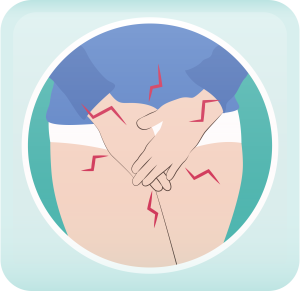
Table of Contents
- Summary
- Introduction
- What are the Types of Antagonists?
- How Do Antagonists Work?
- The Benefits of GnRH Antagonists
- What is the Cost?
- How Do I Start This Medication?
- How Long Should I Be On This Medication?
- Side Effects of Antagonists
- What are the Common Side Effects?
- Are There Long-Term Effects?
- Impacts on Fertility and Contraception
- Managing Symptoms with Antagonists
Summary:
- GnRH antagonists reduce hormone levels by targeting the brain, often decreasing estrogen and progesterone, which can lead to less period pain, pelvic discomfort, and even stopping periods in some cases.
- Many users report significant relief, including reduced period and pelvic pain, less pain during sex, and lighter periods and pressure relief from fibroids with combination therapy.
- Low-dose, high-dose and combination therapy options are available for managing symptoms of endometriosis and fibroids.
- Most drug plans cover antagonist treatments for fibroids and endometriosis. Financial assistance is available for those without coverage—talk to your doctor for more details.
Antagonists offer a new way to manage the symptoms of endometriosis and fibroids by targeting hormone levels in the body. By reducing estrogen and progesterone, they help ease period pain, pelvic discomfort and other related issues.
With convenient daily doses, starting on antagonist therapy can make a real difference in your quality of life. While common side effects like headaches or hot flashes usually improve after a few months, the treatment is reversible, and your fertility remains unaffected. Talk with your doctor to learn more about antagonist therapy and find out if it could offer you appropriate relief.
What Are the Types of Antagonists?
Low-dose therapy is used to manage moderate endometriosis pain. For more severe cases, a higher dose may be prescribed, while combination treatment (with a small amount of estrogen/progesterone added) offers an alternative approach to reduce symptoms and minimize hormonal side effects.
- Low-dose: Elagolix (Orilissa™) 150 milligrams, once daily
- High-dose: Elagolix (Orilissa™) 200 milligrams, twice daily
- Combination therapy: Relugolix (Myfembree™) 40 milligrams once daily + Addback (small amount of estrogen/progesterone)
Learn More: GnRH Antagonist Combination Therapy for Endometriosis & Heavy Periods
How Do Antagonists Work?
Antagonists work on the brain to decrease or shut down hormone release, decreasing the amount of estrogen and progesterone in your body. In some cases, people stop having periods.
The Benefits of GnRH Antagonists
Many users have noticed a real difference with antagonist therapies:
- Experiencing less period pain from endometriosis
- Reduced pelvic pain between cycles
- Less discomfort during sex (with high-dose and combination therapies)
For many dealing with fibroids, combination therapies have helped ease heavy periods and pressure symptoms, bringing much-needed relief.
What is the Cost?
Most drug plans cover treatment for fibroids and endometriosis. For those without coverage, there is assistance available—speak to your doctor about financial assistance.
How Do I Start this Medication?
Medication is taken orally daily, without any breaks. Be sure to follow instructions from your pharmacist and take either with or without food around the same time every day.
To ensure you are not pregnant when starting this medication, start your first dose at the beginning of your next period or in the first week of your period.
How Long Should I Be on This Medication?
Living with endometriosis can be tough, but if the medications are working, you can take them on a long-term basis. For high-dose antagonists, your doctor might recommend an ‘add-back’ therapy to keep things balanced and help you stay on them longer.
Side Effects of GnRH Antagonists
While antagonists are generally well-tolerated, there may be some common side effects that you may encounter within the first three months.
Common Side Effects
While antagonists are generally easy to handle, side effects can include:
- Headaches
- Hot flashes
- Irregular bleeding
- Mood changes
There is no evidence that these medications cause weight gain.
Stick with it for at least 3 months—those side effects usually get better.
Are There Long-Term Effects?
Some endometriosis medications can affect bone density, but the good news is that bone density usually bounces back once you stop the medication. While on the medication, be sure to check in with your doctor for regular bone-density testing.
Tips for Preserving Bone Density
Here are tips and tricks for helping you maintain bone health. By taking proactive steps, you can work to keep your bones strong by:
- Taking 2,000 IU of Vitamin D daily
- Getting 1,200 mg of Calcium from food or supplements
- Doing weight-bearing exercises like squats, running or lifting weights
Impacts on Fertility and Contraception
This type of medication is only temporary, with effects that are completely reversed once the patient stops taking them, however there are some things to consider in terms of both fertility and contraception.
Will Antagonists Affect Fertility?
A thing to note—it’s not safe to get pregnant while on antagonists, but once you stop, your period should be back in about six weeks. There is no impact on fertility.
What Do I Use For Contraception?
GnRH antagonists aren’t a form of birth control, so you’ll still need backup! Be sure to use extra protection, like condoms or an IUD.
Managing Symptoms with Antagonists
Antagonists provide an effective way to manage the symptoms of endometriosis and fibroids by lowering estrogen and progesterone levels. They offer relief from period pain, pelvic discomfort and more, and with simple daily doses, this therapy has the potential to greatly improve your quality of life. Side effects like headaches or hot flashes typically ease over time, and since the treatment is reversible, your fertility won’t be impacted. By partnering with your doctor, antagonist therapy might just be the solution you’ve been searching for.




